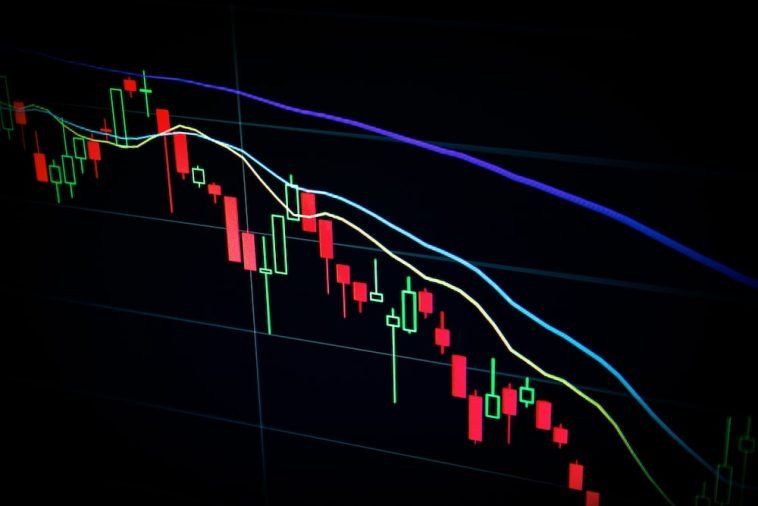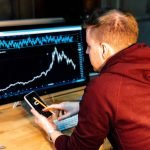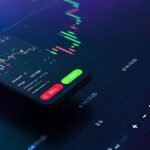Introduction.
Forex trading in Nigeria has grown rapidly over the years, attracting both seasoned investors and beginners looking to tap into the global currency markets.
With Nigeria’s economy facing challenges like inflation and a fluctuating naira, many people are exploring Forex as a way to earn extra income or even build wealth over time. If you’re reading this, you might be wondering how to get started and whether it’s a good idea for you.
In this post, I’ll walk you through the basics of Forex trading in Nigeria, how to get started, the risks, the tools you need, and some tips that will help you become successful in the market.
Plus, I’ll answer some frequently asked questions to clear up any confusion you might have. So, let’s dive right in.
What Is Forex Trading?
First, let’s break down what Forex trading is. Forex, short for “foreign exchange,” involves buying and selling currencies to make a profit.
For example, you might buy the US dollar with Nigerian naira, hoping that the value of the dollar will increase relative to the naira, so you can sell it later at a higher price.
The Forex market is the largest and most liquid financial market in the world, with a daily trading volume of over $6 trillion.
In simple terms, it’s where countries exchange currencies, but anyone can participate in it, even from the comfort of their own home.
Why Forex Trading in Nigeria?
Nigeria has a young and vibrant population, and as the country faces various economic challenges like inflation, high unemployment rates, and a weakening naira, many Nigerians are looking for alternative sources of income. Forex trading offers an opportunity to potentially earn profits by trading currencies.
The global nature of the Forex market means that, unlike the stock market, trading doesn’t depend on the performance of any single country’s economy but rather on the value of currencies relative to each other.
Moreover, with the rise of online trading platforms, it’s easier than ever for Nigerians to access the Forex market.
Platforms like MetaTrader 4, MetaTrader 5, and others allow traders to start with low capital and trade from anywhere, at any time.
How Do I Start Forex Trading in Nigeria?
Now that you know a bit about what Forex trading is and why it’s gaining popularity in Nigeria, let’s look at how to actually get started.
1. Learn the Basics of Forex
Before you even think about investing a single naira, it’s crucial to understand how Forex works. Forex trading can be risky, and not knowing the basics can lead to losing money quickly.
Luckily, there are many free resources online, such as YouTube tutorials, blogs, and Forex forums, where you can learn at your own pace.
Some important terms to familiarize yourself with include:
- Pip – the smallest price movement in a currency pair.
- Lot – a standardized unit of currency in Forex trading.
- Leverage – the ability to trade larger positions with a smaller amount of capital.
- Spread – the difference between the buying and selling price of a currency pair.
2. Choose a Reliable Forex Broker
In Nigeria, you’ll need to find a trustworthy Forex broker to trade. A broker is the middleman between you and the Forex market.
They provide you with access to trading platforms, allow you to deposit funds, and execute trades on your behalf.
When choosing a Forex broker in Nigeria, keep these factors in mind:
- Regulation: Look for brokers that are regulated by reputable financial authorities. In Nigeria, the Securities and Exchange Commission (SEC) oversees Forex trading, but some international brokers are also regulated in countries like the UK or the EU.
- Trading Platform: Ensure that the broker offers a trading platform that is easy to use. MetaTrader 4 (MT4) and MetaTrader 5 (MT5) are the most popular platforms for Forex trading.
- Fees and Spreads: Brokers charge spreads (the difference between buy and sell prices), and some may charge commissions. Make sure you compare costs before choosing a broker.
- Customer Support: Choose a broker with responsive customer service in case you need help with your account or any technical issues.
3. Open a Trading Account
Once you’ve chosen a broker, you’ll need to open a trading account. This involves providing some personal information, such as your ID and proof of address, and making an initial deposit.
The minimum deposit amount varies depending on the broker, but some brokers allow you to start with as little as $1 (around ₦750 in local currency).
Most brokers also offer demo accounts, which are a great way to practice trading with virtual money before risking your own.
4. Fund Your Trading Account
To trade, you’ll need to deposit money into your trading account. Most brokers offer several payment methods like bank transfers, debit/credit cards, or even e-wallets such as PayPal, Skrill, or Neteller.
Keep in mind that currency exchange rates can affect the amount of money you deposit or withdraw, especially if you’re using Nigerian naira to fund your account.
You might also want to consider the broker’s withdrawal policies, including any fees they charge for withdrawing your funds.
5. Start Trading
Now that your account is funded, you can start trading. However, it’s important to approach Forex trading with caution.
Many beginners make the mistake of diving in without understanding the risks involved. It’s essential to start small and trade with money you can afford to lose.
Tips for Success in Forex Trading
- Start with a Demo Account: Before putting real money on the line, practice on a demo account. This will help you get familiar with the platform and understand how trades work.
- Set Realistic Goals: While Forex trading can be profitable, it’s not a get-rich-quick scheme. Set small, achievable goals and understand that consistency is key.
- Use Stop-Loss Orders: A stop-loss order automatically closes your trade when the price hits a certain level, helping to limit your losses. This is especially important in Forex, where price movements can be volatile.
- Stay Informed: Keep an eye on global news, as economic and political events can affect currency prices. Tools like economic calendars can help you stay updated on important events.
- Don’t Rely on Leverage Too Much: While leverage allows you to trade larger positions with a smaller amount of capital, it also amplifies your losses. Use leverage carefully and never trade with more than you’re willing to lose.
Risks of Forex Trading
Forex trading isn’t without its risks. The market can be unpredictable, and there’s always a chance you could lose money. Some of the risks include:
- Market Volatility: Currency prices can fluctuate wildly due to news events or geopolitical factors.
- Leverage: While leverage can magnify profits, it can also lead to significant losses.
- Scams: Be wary of fraudulent brokers or schemes promising guaranteed profits. Always do your research before committing any money.
FAQs
1. How much money do I need to start Forex trading in Nigeria?
You can start with as little as $1, but it’s recommended to start with at least $100 to give yourself enough room to manage risk and learn how the market works.
2. Is Forex trading legal in Nigeria?
Yes, Forex trading is legal in Nigeria. The Central Bank of Nigeria (CBN) and the Nigerian Securities and Exchange Commission (SEC) regulate Forex activities in the country.
3. Can I trade Forex on my phone?
Yes! Many brokers offer mobile apps that allow you to trade Forex on your phone. These apps are available for both Android and iOS.
4. How do I make money from Forex trading?
You make money by buying currencies at a low price and selling them at a higher price, or by selling a currency at a high price and buying it back at a lower price. The goal is to predict currency price movements correctly.
Conclusion
Forex trading in Nigeria is an exciting opportunity to make money, but it’s important to go into it with a solid understanding of how the market works.
It’s not a get-rich-quick scheme, and it requires patience, discipline, and practice.
By starting small, using a reliable broker, and learning as much as you can, you can gradually build your skills and confidence.
So, are you ready to take the plunge into Forex trading and see where it can take you?





GIPHY App Key not set. Please check settings